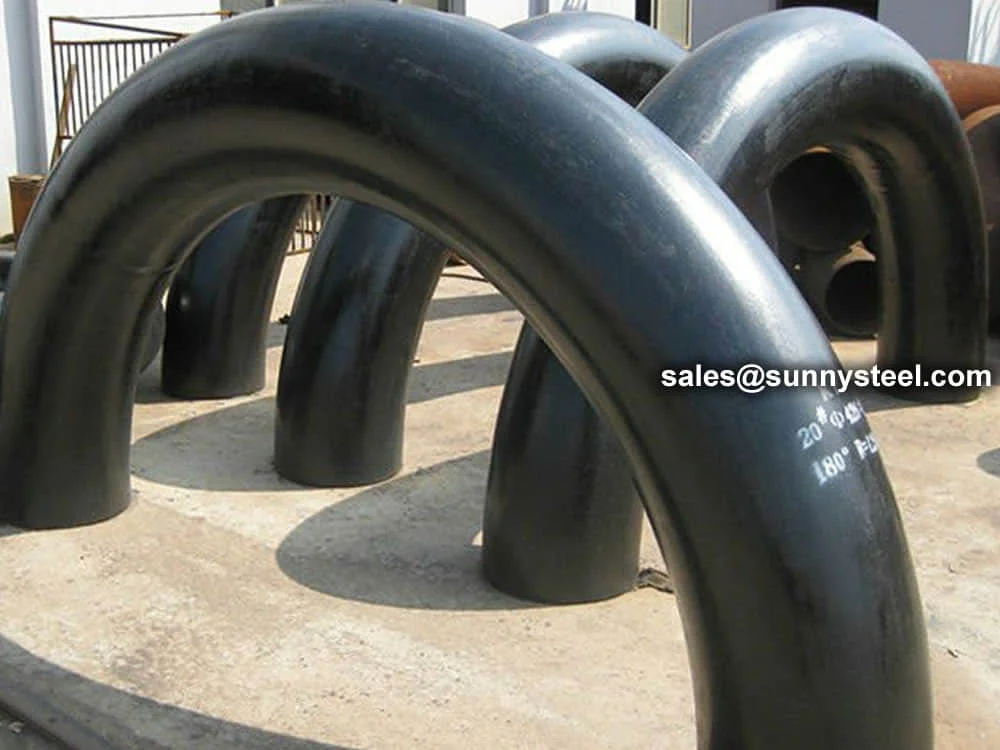
Seamless And Welded 180-degree U-bends For Efficient Flow In Complex Piping Systems
180-degree pipe bends, also known as u-bends, are pipe fittings bent at a 180-degree angle, allowing pipelines to reverse direction efficiently.
Seamless And Welded 180-degree U-bends For Efficient Flow In Complex Piping Systems
180-degree pipe bends, also known as u-bends, are pipe fittings bent at a 180-degree angle, allowing pipelines to reverse direction efficiently. available in bend radii such as 3d, 5d, or 7d (three, five, or seven times the pipe’s nominal diameter), they are designed for industrial piping systems requiring smooth flow and space optimization.
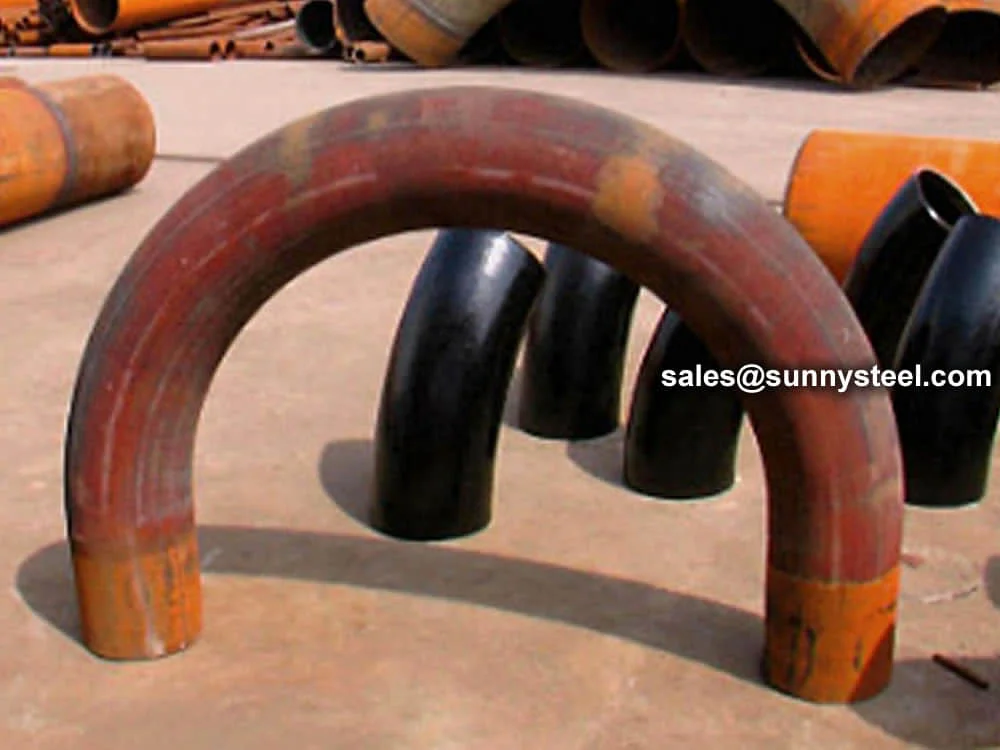
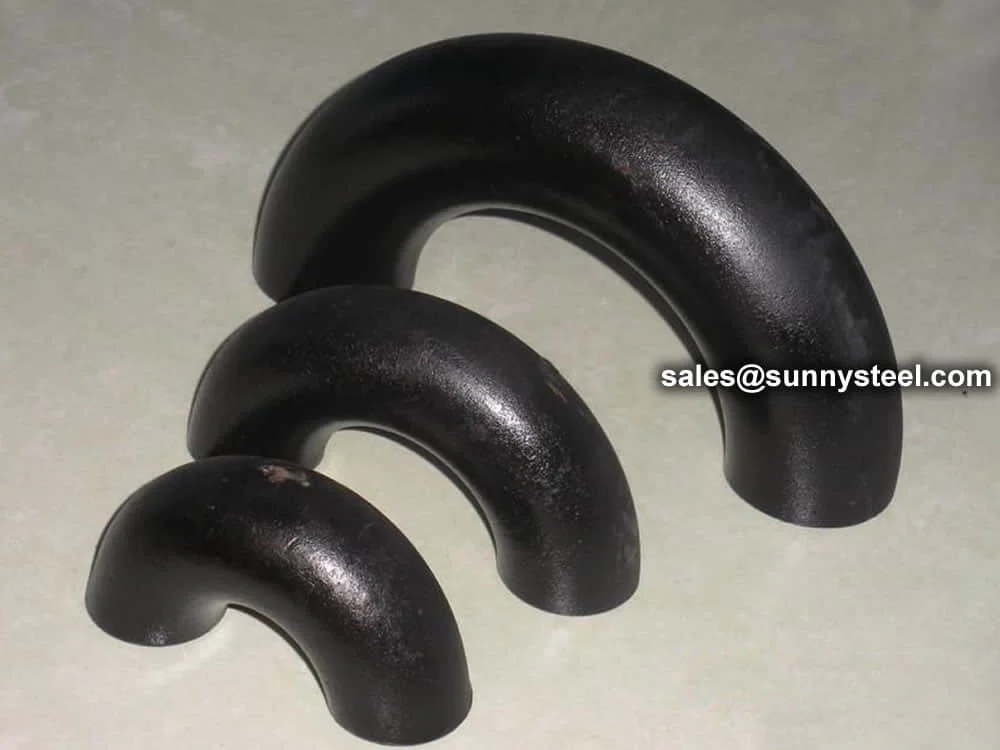
180-Degree Pipe Bends, also known as U-bends, are pipe fittings bent at a 180-degree angle, allowing pipelines to reverse direction efficiently. Available in bend radii such as 3D, 5D, or 7D (three, five, or seven times the pipe’s nominal diameter), they are designed for industrial piping systems requiring smooth flow and space optimization. Compliant with standards like ASME B16.9 and MSS SP-43, these bends are crafted from carbon steel (ASTM A234 WPB) or stainless steel (ASTM A403 WP304/WP316), offering superior strength, erosion resistance, and corrosion resistance. They are ideal for boiler pipeline protection in industries such as oil and gas, power generation, chemical processing, HVAC, and automotive applications.
Manufactured through hot induction bending, cold-forming, or other precise methods, 180-degree pipe bends ensure minimal turbulence and pressure loss. Available in sizes from 1/2” to 48” (DN15 to DN1200) with wall thicknesses from SCH 10 to SCH 160, these U-bends are suited for high-pressure and high-temperature systems (up to 870°C for stainless steel, 425°C for carbon steel).
180-degree pipe bends support welding, bending, and flanging, with excellent weldability for stainless steel and good weldability for carbon steel. Rigorous testing, including chemical analysis, tensile testing (≥370 N/mm² for carbon steel, ≥515 N/mm² for stainless steel), flattening, and nondestructive examinations (radiographic, ultrasonic, or eddy current), ensures compliance with industry standards for demanding applications.
Coated with galvanizing, FBE, or 3LPE for carbon steel, and passivation for stainless steel, 180-degree pipe bends enhance corrosion resistance, protecting against rust and chemical exposure. Their U-shaped design minimizes flow resistance and optimizes space, making them suitable for boiler pipeline protection, heat exchangers, cooling coils, refinery piping, and structural applications like handrails and sign frames.
For engineers seeking efficient and durable industrial piping solutions, 180-degree pipe bends deliver exceptional flow performance, high strength, and reliability, addressing challenges like pipeline corrosion, mechanical stress, and complex piping layouts.
| Specification | Details |
|---|---|
| Standards | ASME B16.9, MSS SP-43 |
| Materials | Carbon Steel (ASTM A234 WPB), Stainless Steel (ASTM A403 WP304/WP316) |
| Sizes | 1/2” to 48” (DN15 to DN1200) |
| Wall Thickness | SCH 10 to SCH 160 |
| Bend Radius | 3D, 5D, 7D, or Custom |
| Angle | 180° (U-Bend) |
| Manufacturing | Hot Induction Bending, Cold-Forming, Seamless, Welded |
| Coatings | FBE, 3LPE, Galvanizing (Carbon Steel), Passivation (Stainless Steel) |
| Testing | Chemical Analysis, Tensile, Flattening, Radiographic, Ultrasonic, Hydrostatic |
| Feature | 180-Degree U-Bends | 90-Degree 5D Bends | 90-Degree 3D Bends | Elbows (ASME B16.9) |
|---|---|---|---|---|
| Bend Angle | 180° | 90° | 90° | 90°, 45° |
| Bend Radius | 3D, 5D, 7D, or Custom | 5D (5x Pipe Diameter) | 3D (3x Pipe Diameter) | 1D (SR), 1.5D (LR) |
| Flow Characteristics | Smooth, minimal turbulence | Very smooth, low turbulence | Smooth, moderate turbulence | Higher turbulence |
| Size Range | 1/2” to 48” (DN15 to DN1200) | 1/2” to 48” (DN15 to DN1200) | 1/2” to 48” (DN15 to DN1200) | 1/2” to 24” (DN15 to DN600) |
| Applications | Heat exchangers, cooling coils, pipelines | Long pipelines, refineries | Pipelines, automotive, structural | Compact piping systems |
| Corrosion Resistance | Enhanced by coatings/passivation | Enhanced by coatings/passivation | Enhanced by coatings/passivation | Enhanced by coatings/passivation |
| Key Advantage | Space-efficient flow reversal | Smooth flow, low pressure loss | Balanced flow and space efficiency | Compact, cost-effective |
A curated list of long-tail keywords for 180-degree pipe bends, covering diverse bending applications, specifications, and material properties.
Note: 180-degree pipe bends are designed for smooth flow reversal and corrosion-resistant industrial piping across various applications. Contact a certified supplier for detailed specifications.

Radius is three times the nominal diameter. Compact design for space-limited applications.
Radius is five times the nominal diameter. Optimal balance of flow and space requirements.
Radius is ten times the nominal diameter. Maximum flow efficiency with minimal pressure drop.
For a 10-inch diameter pipe with a 5D bend:
Centerline Radius = 5 × 10 inches = 50 inches
The radius calculation helps determine the space requirements and flow characteristics of the bend.
| Material Type | Grades & Standards |
|---|---|
| Stainless Steel | ASTM A403 WP Gr. 304, 304L, 304H, 309, 310, 316, 316L, 316Ti, 317L, 321, 347, 347H, 904L |
| Carbon Steel | ASTM A 234 WPB, WPBW, WPHY 42, WPHY 46, WPHY 52, WPH 60, WPHY 65 & WPHY 70 |
| Low-Temperature Carbon Steel | ASTM A420 WPL3, A420 WPL6 |
| Alloy Steel | ASTM / ASME A/SA 234 Gr. WP 1, WP 5, WP 9, WP 11, WP 12, WP 22, WP 91 |
| Duplex & Super Duplex Steel | ASTM A815, ASME SA 815 UNS 31803, UNS 32205 (Dual Certified) |
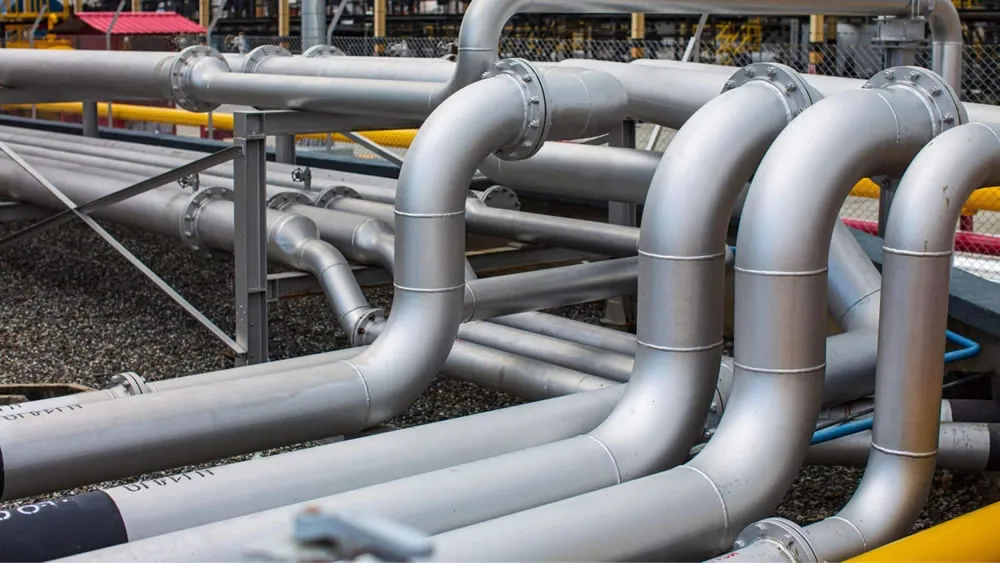
The 180-Degree Pipe Bending are used in the following industries:
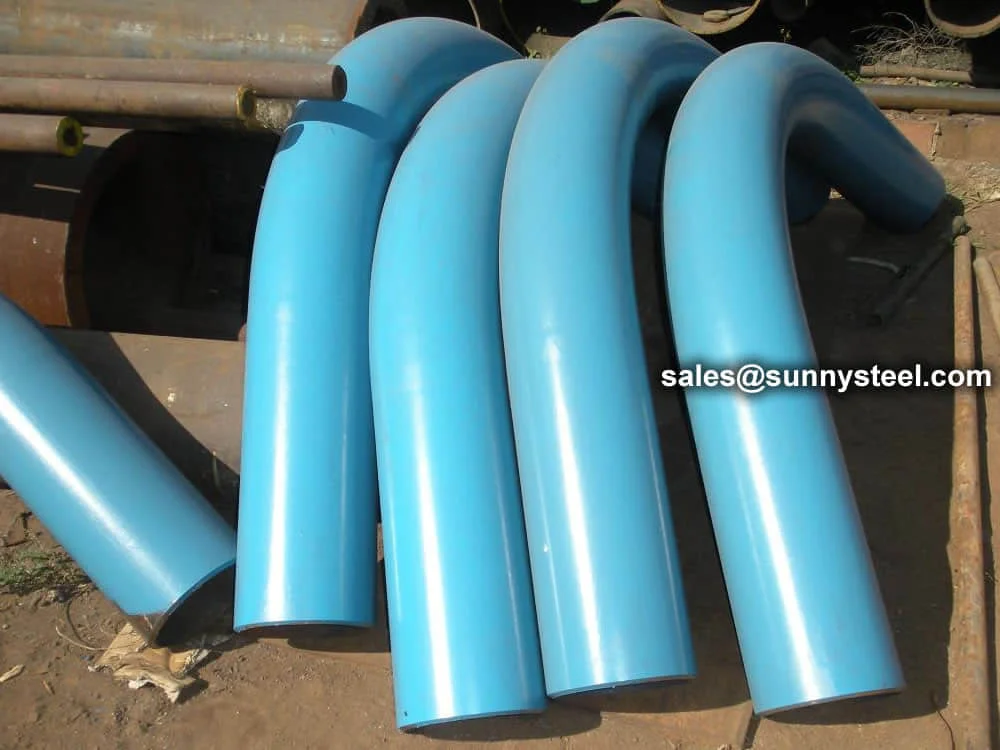
A 7d pipe bending is a pipe bend that the bend rad...
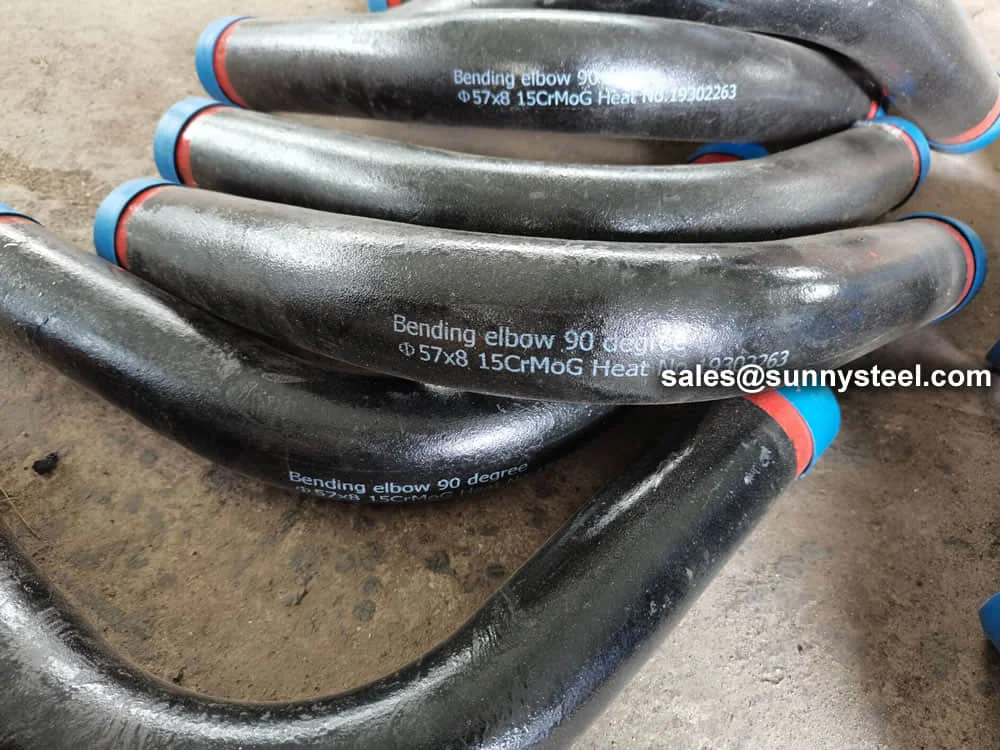
15crmog pipe bending involves shaping seamless all...
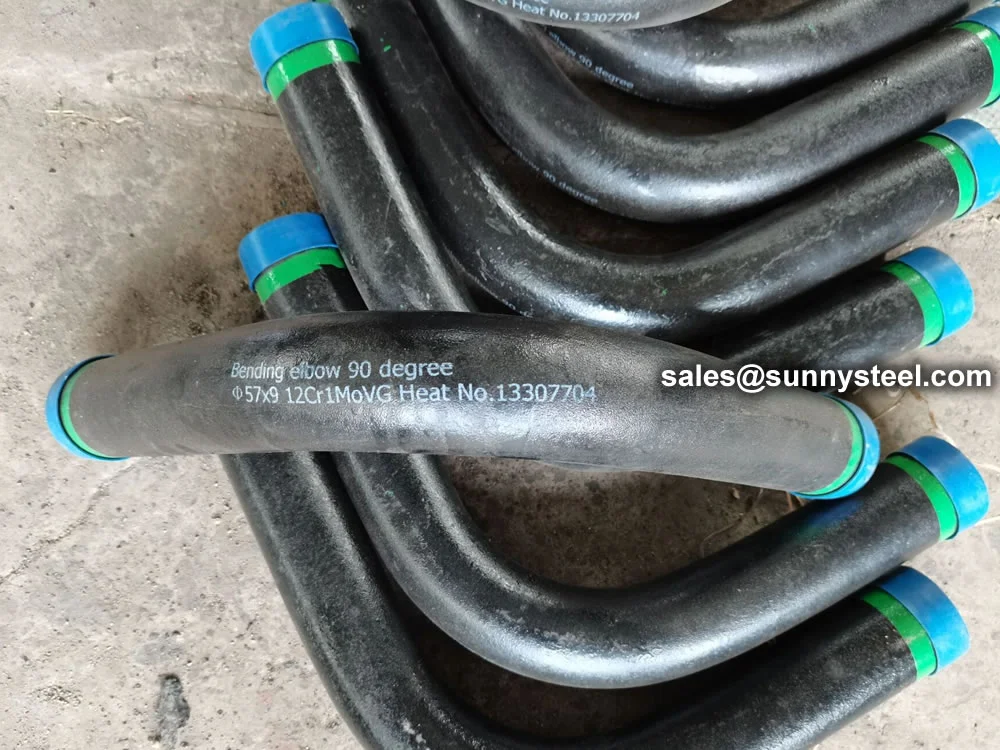
12cr1movg pipe bending refers to the process of sh...
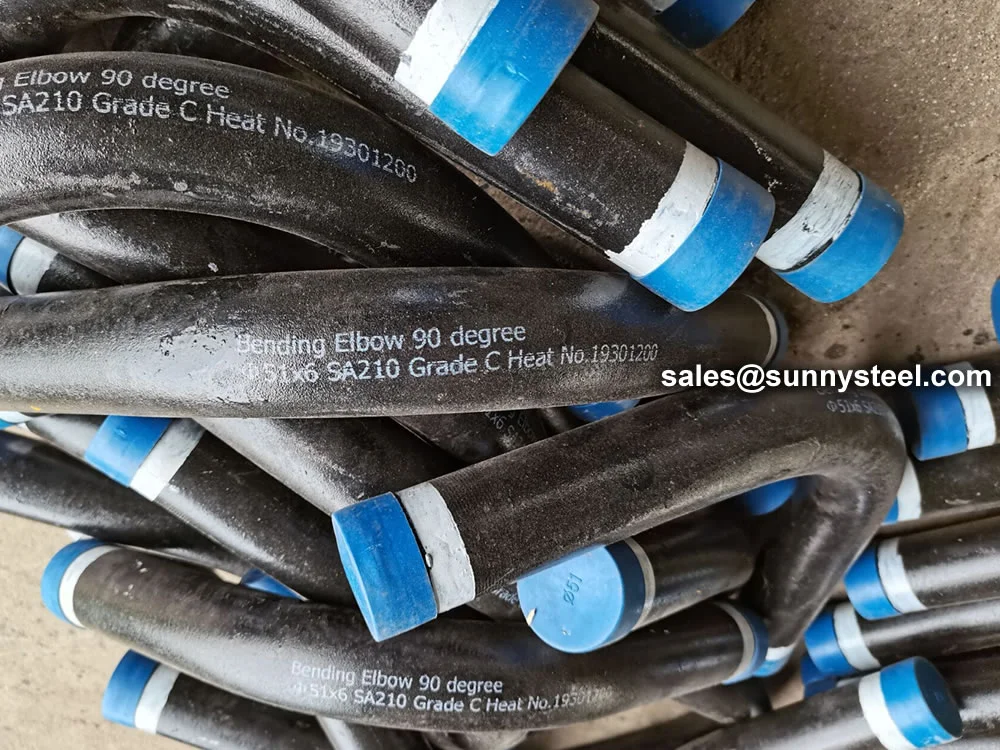
Astm a210 grade c pipe bending involves forming se...
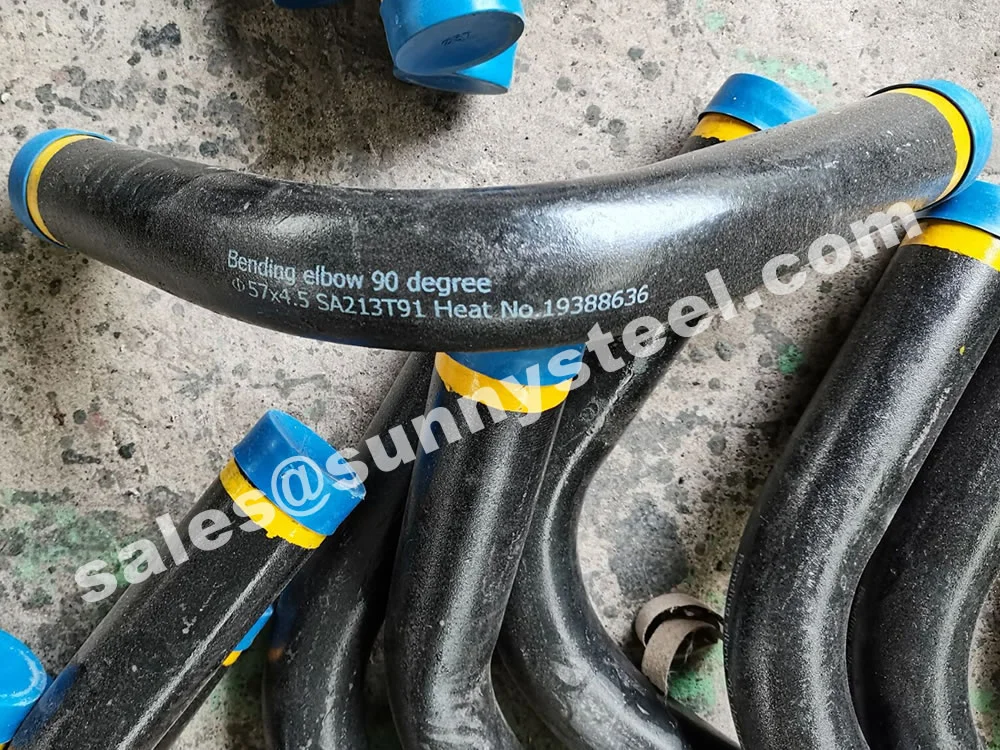
Bending astm a213 t91 requires special care and te...
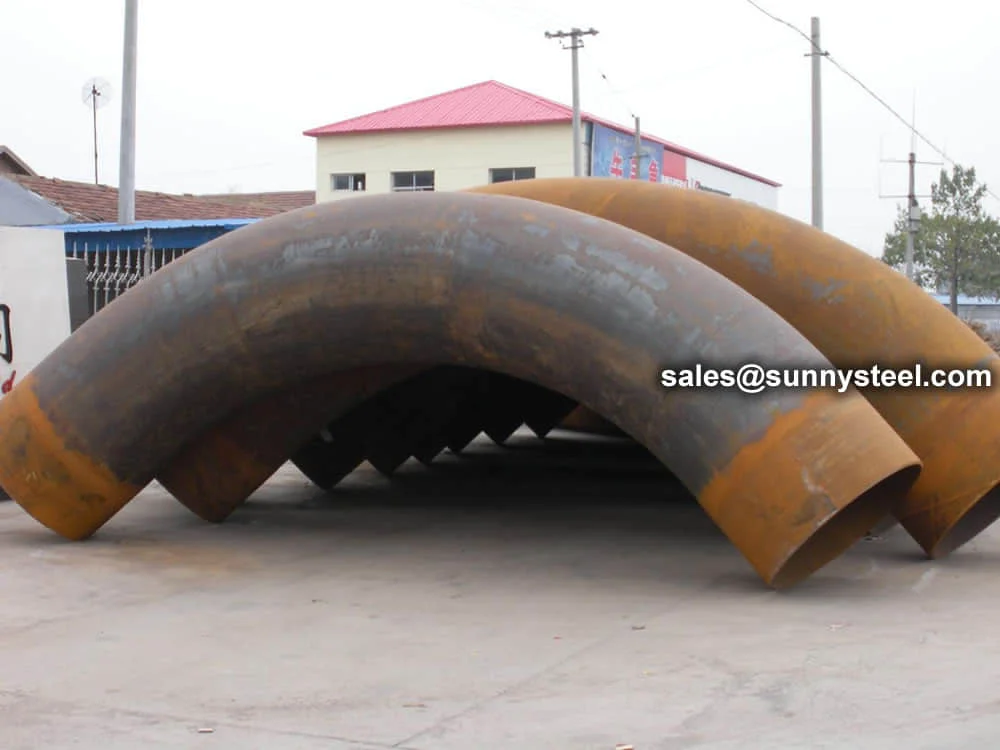
Large size pipe bending refers to the technique of...